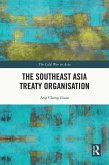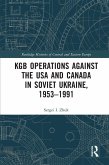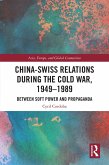Three distinguished diplomatic historians offer an assessment of the Cold War in the realist tradition that focuses on balancing the objectives of foreign policy with the means of accomplishing them.
America and the Cold War, 1941-1991: A Realist Interpretation is a sweeping historical account that focuses on the policy differences at the center of this conflict. In its pages, three preeminent authors offer an examination of contemporary criticism of the Cold War, documenting the views of observers who appreciated that many policies of the period were not only dangerous, but could not resolve the problems they contemplated.
The study offers a comprehensive chronicle of U.S.-Soviet relations, broadly conceived, from World War II to the collapse of the Soviet Union. It places the origins of the Cold War as related to the contentious issues of World War II and stresses the failure of Washington to understand or seriously seek settlement of those issues. It points out how nuclear weaponry gradually assumed political stature and came to dominate high-level, Soviet-American diplomatic activity, at the same time discounting the notion that the Cold War was a global ideological confrontation for the future of civilization. A concluding chapter draws lessons from the Cold War decades, showing how they apply to dealing with nation-states and terrorist groups today.
America and the Cold War, 1941-1991: A Realist Interpretation is a sweeping historical account that focuses on the policy differences at the center of this conflict. In its pages, three preeminent authors offer an examination of contemporary criticism of the Cold War, documenting the views of observers who appreciated that many policies of the period were not only dangerous, but could not resolve the problems they contemplated.
The study offers a comprehensive chronicle of U.S.-Soviet relations, broadly conceived, from World War II to the collapse of the Soviet Union. It places the origins of the Cold War as related to the contentious issues of World War II and stresses the failure of Washington to understand or seriously seek settlement of those issues. It points out how nuclear weaponry gradually assumed political stature and came to dominate high-level, Soviet-American diplomatic activity, at the same time discounting the notion that the Cold War was a global ideological confrontation for the future of civilization. A concluding chapter draws lessons from the Cold War decades, showing how they apply to dealing with nation-states and terrorist groups today.









